10 start with J start with J

In spring of 1960, Japan’s government passed Anpo, a revision of the postwar treaty that allows the United States to maintain a military presence in Japan. This move triggered the largest popular backlash in the nation’s modern history. These protests, Nick Kapur argues in Japan at the Crossroads, changed the evolution of Japan’s politics and culture, along with its global role.
The yearlong protests of 1960 reached a climax in June, when thousands of activists stormed Japan’s National Legislature, precipitating a battle with police and yakuza thugs. Hundreds were injured and a young woman was killed. With the nation’s cohesion at stake, the Japanese government acted quickly to quell tensions and limit the recurrence of violent demonstrations. A visit by President Eisenhower was canceled and the Japanese prime minister resigned. But the rupture had long-lasting consequences that went far beyond politics and diplomacy. Kapur traces the currents of reaction and revolution that propelled Japanese democracy, labor relations, social movements, the arts, and literature in complex, often contradictory directions. His analysis helps resolve Japan’s essential paradox as a nation that is both innovative and regressive, flexible and resistant, wildly imaginative yet simultaneously wedded to tradition.
As Kapur makes clear, the rest of the world cannot understand contemporary Japan and the distinct impression it has made on global politics, economics, and culture without appreciating the critical role of the “revolutionless” revolution of 1960—turbulent events that released long-buried liberal tensions while bolstering Japan’s conservative status quo.

Despite the undeniable importance of Japan in world affairs, both politically and economically, the office of the Japanese prime minister has recieved far less attention from scholars than have the top political offices in other advanced industrialized democracies. This book is the first major systemic analysis of the Japanese prime minister’s role and influence in the policy process.
Kenji Hayao argues that the Japanese prime minister can play a major if not critical role in bringing about a change in policy. In Japan the prime minister’s style is different from what is considered usual for parliamentary leaders: rather than being strong and assertive, he tends to be reactive. How did the role develop in this way? If he is not a major initiator of policy change, how and under what conditions can the prime minister make his impact felt? Finally, what are the consequences of this rather weak leadership?
In answering these questions, Professor Hayao presents two case studies (educational reform and reform of the tax system) involving Nakasone Yasuhiro to see how he be became involved in the policy issues and how he affected the process. Hayao then examines a number of broad forces that seem important in explaining the prime minister’s role in the policy process: how a leader is chosen; his relationships with other important actors in the political system - the political parties and the subgovernments; and the structure of his “inner” staff and advisors.

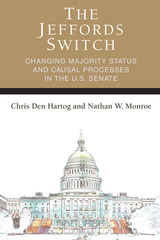
Senator Jim Jeffords left the Republican Party in May 2001 and became an independent. Because he agreed to vote with the Democrats on organizational votes, this gave that party a 51–49 majority in the Senate.
Using the “Jeffords switch,” Chris Den Hartog and Nathan W. Monroe examine how power is shared and transferred in the Senate, as well as whether Democratic bills became more successful after the switch. They also use the data after the switch, when the Republican Party still held a majority on many Democratic Party-led committees, to examine the power of the committee chairs to influence decisions. While the authors find that the majority party does influence Senate decisions, Den Hartog and Monroe are more interested in exploring the method and limits of the majority party to achieve its goals.
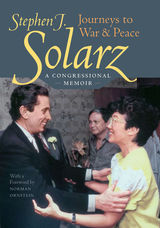

In this timely book, a Pulitzer Prize–winning reporter trains an autobiographical lens on a moment of remarkable transition in American journalism. Just a few years ago, the mainstream press was wrestling with whether labeling waterboarding as torture violated important norms of neutrality and objectivity. Now, major American newspapers regularly call the president of the United States a liar. Clearly, something has changed as the old rules of “balance” and “two sides to every story” have lost their grip. Is the change for the better? Will it last?
In Just a Journalist, Linda Greenhouse—who for decades covered the U.S. Supreme Court for The New York Times—tackles these questions from the perspective of her own experience. A decade ago, she faced criticism from her own newspaper and much of journalism’s leadership for a speech to a college alumnae group in which she criticized the Bush administration for, among other things, seeking to create a legal black hole at Guantánamo Bay—two years after the Supreme Court itself had ruled that the detainees could not be hidden away from the reach of federal judges who might hear their appeals.
One famous newspaper editor expressed his belief that it was unethical for a journalist to vote, because the act of choosing one candidate over another could compromise objectivity. Linda Greenhouse disagrees. Calling herself “an accidental activist,” she raises urgent questions about the role journalists can and should play as citizens, even as participants, in the world around them.
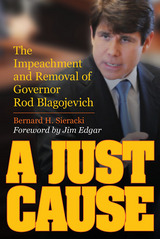
During the predawn hours of December 9, 2008, an FBI team swarmed the home of Illinois governor Rod Blagojevich and took him away in handcuffs. The shocking arrest, based on allegations of corruption and extortion, launched a chain of political events never before seen in Illinois. In A Just Cause, Bernard H. Sieracki delivers a dynamic firsthand account of this eight-week political crisis, beginning with Blagojevich’s arrest, continuing through his impeachment and trial, and culminating in his conviction and removal from office. Drawing on his own eyewitness observations of the hearings and trial, the comments of interviewees, trial transcripts, and knowledge gained from decades of work with the Illinois legislature, Sieracki tells the compelling story of the first impeachment and removal from office of an Illinois governor, while providing a close look at the people involved.
A Just Cause depicts Blagojevich as a master of political gamesmanship, a circus ringmaster driven by personal ambition and obsessed with private gain. Sieracki examines in depth the governor’s unethical behavior while in office, detailing a litany of partisan and personal hostilities that spanned years. He thoroughly covers the events leading to Blagojevich’s downfall and the reactions of the governor’s cohorts. The author discusses the numerous allegations against Blagojevich, including attempts to “sell” appointments, jobs, and contracts in exchange for financial contributions. Sieracki then exhaustively recounts Blagojevich’s senate trial and the governor’s removal from office.
This engrossing volume is both a richly detailed case study of the American checks-and-balances system and an eyewitness account of unprecedented events. It will appeal to anyone interested in the stunning, true tale of a state upholding the maxim “The welfare of the people is the supreme law.”
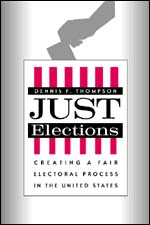
Thompson argues that three central democratic principles—equal respect, free choice, and popular sovereignty—underlie our electoral institutions, and should inform any assessment of the justice of elections. Although we may all endorse these principles in theory, Thompson shows that in practice we disagree about their meaning and application. He shows how they create conflicts among basic values across a broad spectrum of electoral controversies, from disagreements about term limits and primaries to disputes about recounts and presidential electors.
To create a fair electoral system, Thompson argues, we must deliberate together about these principles and take greater control of the procedures that govern our elections. He demonstrates how applying the principles of justice to electoral practices can help us answer questions that our electoral system poses: Should race count in redistricting? Should the media call elections before the polls close? How should we limit the power of money in elections?
Accessible and wide ranging, Just Elections masterfully weaves together the philosophical, legal, and political aspects of the electoral process. Anyone who wants to understand the deeper issues at stake in American elections and the consequences that follow them will need to read it.
In answering these and other questions, Thompson examines the arguments that citizens and their representatives actually use in political forums, congressional debates and hearings, state legislative proceedings, and meetings of commissions and local councils. In addition, the book draws on a broad range of literature: democratic theory, including writings by Madison, Hamilton, and Tocqueville, and contemporary philosophers, as well as recent studies in political science, and work in election law.
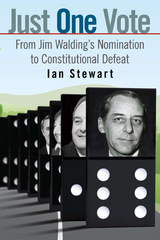

“In most accounts of the tumultuous 1960s, Robert Kennedy plays a supporting role…Sullivan corrects this and puts RFK near the center of the nation’s struggle for racial justice.”
—Richard Thompson Ford, Washington Post
“A profound and uplifting account of Robert F. Kennedy’s brave crusade for racial equality. This is narrative history at its absolute finest.”
—Douglas Brinkley, author of Rosa Parks
“A sobering analysis of the forces arrayed against advocates of racial justice. Desegregation suits took years to move through the courts. Ballot access was controlled by local officials…Justice Rising reminds us that although he was assassinated over 50 years ago, Kennedy remains relevant.”
—Glenn C. Altschuler, Florida Courier
“A groundbreaking book that reorients our understanding of a surprisingly underexplored aspect of Robert Kennedy’s life and career—race and civil rights—and sheds new light on race relations during a pivotal era of American history.”
—Kenneth Mack, author of Representing the Race
“Brilliant and beautifully written…could hardly be more timely.”
—Daniel Geary, Irish Times
Race and politics converged in the 1960s in ways that indelibly changed America. This landmark reconsideration of Robert Kennedy’s life and legacy reveals how, as the nation confronted escalating demands for racial justice, RFK grasped the moment to emerge as a transformational leader.
Intertwining Kennedy’s story with the Black freedom struggles of the 1960s, Justice Rising provides a fresh account of the changing political alignments that marked the decade. As Attorney General, Kennedy personally interceded to enforce desegregation rulings and challenge voter restrictions in the South. Morally committed to change, he was instrumental in creating the bipartisan coalition essential to passing the 1964 Civil Rights Act. After his brother’s assassination, his commitment took on a new urgency when cities emerged as the major front in the long fight for racial justice. On the night of Martin Luther King’s assassination, two months before he would himself be killed, his anguished appeal captured the hopes of a turbulent decade: “In this difficult time for the United States, it is perhaps well to ask what kind of nation we are and what direction we want to move in.” It is a question that remains urgent and unanswered.
READERS
Browse our collection.
PUBLISHERS
See BiblioVault's publisher services.
STUDENT SERVICES
Files for college accessibility offices.
UChicago Accessibility Resources
home | accessibility | search | about | contact us
BiblioVault ® 2001 - 2024
The University of Chicago Press









